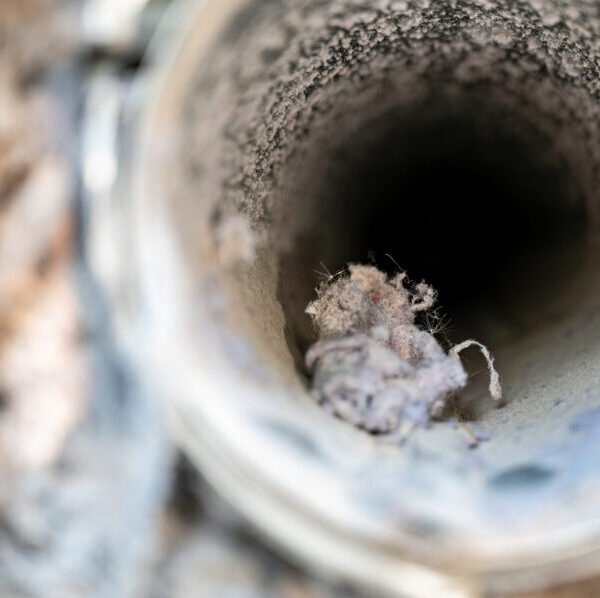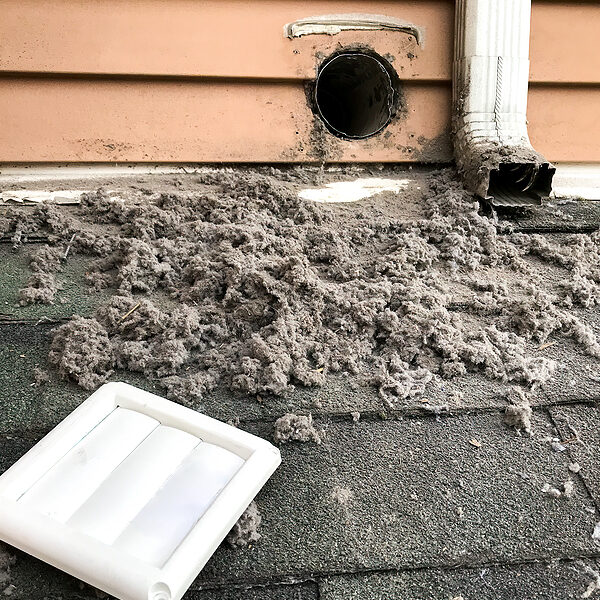Electrical Wire and Dryer Vent Saftey
Homes typically have many feet of wiring; some have a lot more than others. Homeowners often wonder if it’s safe to use the venting that’s connected to their clothes dryers to route electrical wiring. National Chimney Cleaners of Fairfield County, CT, and Morris County, NJ, would like to share some helpful information on whether or not you should run wires through a dryer vent.
 Wiring insulation
Wiring insulation
Electrical wiring is made with an insulation cover that protects the actual wires. The insulation also protects things that the wires will come into contact with after being placed. A common type of wiring insulation is PVC (polyvinyl chloride). This insulation will hold up in heat as high as 220 degrees Fahrenheit, which is hotter than the usual temperatures inside a clothes dryer vent. Most electrical wiring insulation is tested for up to 194 degrees.
But the “usual” dryer vent temperature can go up in cases where the dryer overheats. Still, the heat normally doesn’t go too far past 135 degrees.
Wiring codes
The International Residential Code (IRC) doesn’t talk about electrical wiring placed specifically in dryer vents. It does, however, talk a lot about the importance of proper wiring practices and safety concerns. If a dryer duct presses against wiring, it could damage the wiring. People and materials in the home are at risk any time the insulation of a wire is compromised.
Moisture
Even if wiring can handle the heat in a dryer vent, moisture might be a problem. If the dryer produces excess moisture, which sometimes happens, the moisture can cause an increase in electrical current. This spike in current could lead to a short circuit or, in the worst-case scenario, an electrical fire.
Dryer venting efficiency
Another element to consider is the effect of adding any material to the inside of a dryer vent tube. Keeping the entire venting system fully clean and open is a key part of maintenance. Even small obstructions from lint, debris or large clusters of wiring can lead to:
- Overheating
- Damage to the dryer’s motor
- More time needed to dry clothes
- Fire
It’s unlikely that a wire or two inside a clothes dryer vent will end up damaging the machine or causing you to run three or four cycles just to get your clothes dry. But the wires could cause lint to collect and build up faster than usual, so it’s something you need to think about.
Better safe than sorry
Dryer vent technicians who have seen the problems that result from improper use will tell you that it’s better to be safe than sorry. Dryer vents were not designed to house electrical wires. They were designed to handle the exhaust that dryers make when in use. Vents should be kept clean and clear of all foreign materials and objects.
 It’s a good practice to schedule regular dryer vent cleaning to further ensure the safety of the entire dryer system. Regular cleaning will allow the dryer to run more efficiently, reduce the chance of overheating and motor damage, and give you the peace of mind that comes from knowing your clothes dryer is working safely and correctly.
It’s a good practice to schedule regular dryer vent cleaning to further ensure the safety of the entire dryer system. Regular cleaning will allow the dryer to run more efficiently, reduce the chance of overheating and motor damage, and give you the peace of mind that comes from knowing your clothes dryer is working safely and correctly.
Time for dryer vent service?
If it’s been more than a year since your dryer vent was professionally cleaned and serviced, National Chimney Cleaners is here to help. We serve all of Fairfield County, Connecticut, and Morris County, New Jersey. Reach a venting expert at (800) 631-6177 or get in touch with our handy contact form.

 Wiring insulation
Wiring insulation It’s a good practice to schedule regular dryer vent cleaning to further ensure the safety of the entire dryer system. Regular cleaning will allow the dryer to run more efficiently, reduce the chance of overheating and motor damage, and give you the peace of mind that comes from knowing your clothes dryer is working safely and correctly.
It’s a good practice to schedule regular dryer vent cleaning to further ensure the safety of the entire dryer system. Regular cleaning will allow the dryer to run more efficiently, reduce the chance of overheating and motor damage, and give you the peace of mind that comes from knowing your clothes dryer is working safely and correctly.